I wish art wasn’t a fad. That’s the frustrating part about it to me because this stuff was already being presented to you. It has always been there.
Fans of ABC’s Station 19—the highly-rated, long-running spinoff of its mothership series Grey’s Anatomy—will immediately recognize Grey Damon as fan-favorite Seattle firefighter Jack Gibson. Throughout the course of its run, Jack has faced some tough moments on the job, and it has come to light more recently that he had a rough go of it from the very beginning with a spotty childhood spent in unstable foster care. Jack even tracked down one of his foster siblings, a brother who, devastatingly, had no recollection of Jack, which has resulted in his current spiral in season six.
As Jack’s intimate details continue to unspool on the small screen, Damon is opening up in his own right. What most wouldn’t know—both his TV fans and personal acquaintances alike—has everything to do with his sprawling creative spectrum outside of acting. It was in 2018 that Damon revealed to us his little-known cartooning aspirations upon moving out to Los Angeles. Today, we dig a little deeper, unboxing his creativity in total, including the children’s book he’s working on and other nitty-gritty specifics. This isn’t your by-the-book actor-turned-artist story.
This is the third edition of Second Nature, Anthem’s ongoing series that’s intended to help dispel feelings of distant unfamiliarity with our select interview subjects by burrowing deep into their lesser-known, second—but never secondary—passions. Damon graciously opened the doors to his creative space at home in Los Angeles for an in-depth conversation and exclusive photoshoot.
Station 19 airs Thursdays at 8PM ET/PT on ABC.
I was just thinking back to the last time we spoke at the tail-end of 2018. That was over four years ago, which was season two of Station 19 for you. I’m sure a lot has happened since, on both sides of the camera. Maybe the show is the one thing that’s been a constant for you. How have you been enjoying the new developments for Jack and where your story arc has gone?
I’m always happy to get a sort of darker opportunity. Jack is like the economy: ups and downs. Sometimes there’s depression. Other times, things look alright. What I like is how the show keeps Jack situational. It’s about circumstances. He’s like the embodiment of Murphy’s Law or something, right? I like that. It definitely keeps things interesting.
I think one of the beautiful things about starring on a long-running show as you have done is that there’s opportunity to mine characters so much more. Jack got super fleshed out in these later seasons, and I can only guess that you weren’t privy to all of this when you first started.
No, no. In fact, after season two, we got new showrunners and new characters as a result, in a way. At that point, we just decided that certain things didn’t exist anymore and new things did. So it was always interesting trying to determine like, “How do I play this? Because this other thing happened, but now something else is happening.” That’s also just the nature of television, I guess.
I saw on Deadline that season seven is likely to happen, but there has been no official word.
Oh, I have no idea. And even if I did, I wouldn’t be able to say.
That must actually make things easier for actors—it’s one less thing have to skirt around. You’re a very recognizable face on TV. This show continues to get huge numbers. Just how privy do you think your fans are to your other passions and side projects? Have you kept most of that other stuff, your creative outlets outside of acting, closer to the vest?
Sometimes I’ll share bits and pieces here and there. I mean, I’m always doing something. I don’t watch a lot of TV these days ‘cause I’ve become more obsessed about my little projects, but when I did watch shows, I would work on projects simultaneously. I literally spend most of my time working on my personal projects. I’ve even upset a girlfriend or two over it. [laughs] So I’ll put things out there, and if there’s a response, great. But I suppose I still do it mostly for me anyway.
Just putting myself in your shoes, I wonder if I’d feel way more self-conscious about sharing my art, which is an intimate thing to begin with, had I been so much in the public eye.
Sometimes I’ll share things because I know it’s scary, you know? We just don’t know what kind of response we’re gonna get. But mainly, I don’t always know how I’ll grow from doing that, not necessarily sharing things with viewers, but even with friends or family. My music’s a little weird and it hasn’t always gotten the best response. But after a while, I found that a bit freeing ‘cause I’m not trying to impress anyone at that point. It got to a point where I was like, “I’m okay with this and I’m okay with it not being loved even by the people I love.” If anything, it’s fortunate they’re willing to be completely honest. It can be scary sharing something, like singing a verse that’s nerve-racking for me, but I will mainly share it on this YouTube channel I have, if I share it at all.
Your musical side is completely new to me, but I got the feeling that there was more going on in your creative spectrum the last time we spoke because you had told me you had wanted to cartoon when you moved out to LA. That made me wonder if your desire to cartoon maybe preceded your desire to act. But your mother also introduced you to acting really early on.
Well, it kind of worked out because, with cartooning, I realized I didn’t want to monetize it. With that being said, I’m thinking about doing a children’s book right now and I would like to illustrate it as well. To me, that feels more okay. Anyway, the acting thing just kind of happened in the midst that. I still do whatever I want artistically. I don’t ever feel like I’m sacrificing one for another.
What is your children’s book about?
It’s about grief. I want to make a little manual under the guise of it being a children’s story to help parents better speak to their kids about it in a more honest way. Not in a fairytale way, but in a way where parents could literally help their kids deal with these things in the future as adults.
What inspired this theme?
I realized when my cat had passed away that I didn’t really have the tools to deal with it. I started doing research and saw that there are ways to help you get through these things in a way that’s more effective in the long-term. It’s about the bigger picture. So that’s the idea behind the book: loss. How do we cope with it in a way that’s realistic, and doesn’t come with a lot of things that might not actually benefit you in the future or even in the short-term right then and there? I think with kids, we sometimes underestimate just how intelligent and intuitive they are, you know?
Oh, they pick up on everything. And I could already tell that you’re very attached to your cat. I know you have at least one. There’s Pie. How many cats are we talking about here?
I personally take it on an animal by animal basis. You just never know what specific animal is gonna really get at your heart. But I just have cats. It started with one cat and just made sense to keep accumulating more cats for the other cats. There are three of them: Togi, Pie, and Sophie. That’s Togious Wiserman DáMon, Pierous Doubleday DáMon, and Sophie Avalon DáMon. There was also Bajmere Clutterbuck DáMon, but he passed away. Yeah, I have too many cats. [laughs]
Or never enough.
Yeah, they’re great. All three of them are very affectionate and break the cliché or the mold, so to speak, of how cats are. Anyone who meets them, if they weren’t particularly a cat person to begin with, definitely end up warming up to the idea of cats more. They’re just great little people.
Did you have cats growing up?
I had a plethora of cats and dogs, and a mouse that I named Gray ‘cause it was gray. I also had a turtle. I’ve had so many cats and dogs over the years, too. And the truth is, when I moved to LA, I didn’t want any animals. I didn’t want that responsibility, and I didn’t have the money to take care of one either. The gal who gave Sophie to me said, “Would you like a cat?” I was like, “I don’t want another animal, but I understand that you have too many in your situation so I’ll take her on until we find her another home.” She just kind of stayed. It’s been 13 years now. It’s funny because, in that situation where I wasn’t particularly into the idea of taking on another little person, I would have roommates or just friends around or whatever who would be allergic and they would try and push me to get rid of her. I always got rid of them instead. [laughs]
Yeah, you like your cats better. Simple as that. Good for you.
Hey, it’s not Sophie’s fault. I just took it as a sign. Maybe that’s a sign that we’re not supposed to—look, you can’t ask a man to get rid of his cat. You just can’t.
There’s a big cloud of mystery around your art. First of all, what are your essential tools?
Mostly a pencil and paper and maybe some cool pens. And I’ve kind of switched over to digital because you can just pick up and go. It also gives you more control, it’s cleaner, and very precise.
What’s your take on AI-generated images? We’re really living through this in real-time.
Even as an actor, if not already, we could be easily replaced. So on that end of things, I’m not ecstatic. But on the other hand, it pushes me to want to do things a computer could never manifest or put together on its own. All AI-generated art is ultimately pulled from other works, right? Artists can see their own styles in it where they’re like, “I just got ripped off.” What I found really interesting about it was when everybody started changing their profile pictures to AI-rendered ones of themselves. In particular, I have an ex who did that and I’m like, “I’ve literally drawn pictures of you in a very similar fashion. I’ve done that for you, and you wouldn’t throw that thing up I made for you. No, it’s fine, it’s fine.” I just find it funny how art all of a sudden became really interesting to people via AI when I’ve been trying to get people excited about art my whole life. Everywhere around you, there’s freakin’ art, man. I guess it just had to be presented to you in the right way.
Well, it wasn’t trending then. It has to trend first, right?
I just wish art wasn’t a fad. That’s the frustrating part about it to me because this stuff was already being presented to you. It has always been there.
Art is obviously a catch-all. Acting is art, too. So where artmaking that’s tactile and solitary is concerned, like drawing or music, what do you consider your primary medium?
Well, I work on music every day. I would even bring my laptop and my little keyboard to work [on Station 19]. In-between takes or setups, I would go to my room and work on whatever I could muster up in a short period of time. But what sucks about that is, when you might be working on something and getting into the flow with some good ideas, that’s always when they call you back. So I’ve learned to become a good notetaker with my music. I’ll quickly try and jot everything down that I was trying to do before I have to go again. This year, I’ve been the last one to set every time, but not too late. It’s a little embarrassing, honestly. Creativity can hit you at the most inopportune times. That’s not an excuse to be late. It just takes time to put a bow on something.
Music became a big part during lockdown, actually. I started taking online courses. I took a few producing courses and a singing course. I wanted to see if I could really do something with it that I felt proud of. I’ve always had trouble finishing things, especially in an academic setting, but with this, I got really obsessive. I never thought I could finish a song or make it long enough. What ended up happening was that, if I couldn’t finish a song, it was no longer for a lack of trying. And I finished three songs. It’s generally the case that I can’t finish it because I get very obsessive. I have a few white whales that I just can’t catch. I sometimes feel like I’m gonna be working on them for like ten years. Maybe they’ll never get released. Maybe it’ll be posthumous: “If only he was still alive… That would’ve been his one-hit wonder. He would’ve been swimming in it!” [laughs]
Is it always standalone tracks or do you like to explore concepts for complete albums?
I have a theme in mind. There is a kind of universe I’ve developed around the music. I don’t have a genre or a particular goal per se, but I do have ideas about where I want to end up. I try not to set too many parameters and just allow it to become what it wants to become. I want to be a vessel for the music and have it flow through me. Whatever it becomes, I’ll accept that to be.
Do you use a moniker for your music?
Yeah, it’s Malarkey, spelled M4L42K3Y.
I recognize that from your Instagram page. You have another account as well, don’t you?
That’s where I put a lot of my digital drawings up. There might be a YouTube link to the music on there as well, but it’s not as ready as I want it to be. I’m just short of really putting things out there and being more comfortable with the idea of people listening to it. If anyone wants to embarrass me, they can definitely go check it out and tell me their thoughts. It is important to me. Maybe it’ll become something. Maybe it’ll all fizzle away, but I don’t wanna give myself over to that idea. I don’t wanna make excuses for why I don’t continue. Music can be very tricky. It can feel endless. It can feel like, “I don’t need to mess with this right now. I can come back to it later.” But I also realized that I can’t just come back to it later. I need to keep at it every day. I am very obsessive about it. When you get obsessive about anything, that can be a deterrent as well. I just try and push myself through those feelings and I think that’s a testament to how much I love it, too.
The creative process is so personal and you’re opening up a lot. Prior to this conversation, again, there was just a lot of mystery around yours. But I actually appreciated that you’re able to retain a kind of elusiveness, especially nowadays with the oversharing. It’s a lost art: championing the subliminal. But I do want to see and hear way more stuff from you, Grey.
Thank you, thank you. I think I might have shot myself in the foot by giving myself total freedom without too many constraints, taking M4L42K3Y on as my alter ego. Malarkey literally means nonsense, right? I wanted to lean into what that could actually mean. It can be political. It can be spiritual. It can become all these different things depending on what associations you’re making. And also, if it all fails and people are like, “I don’t understand what the hell this is,” it’s all good—I’m malarkey. [laughs] Maybe it’s genius, maybe it’s not. You’ll never know for sure.
Growing up, how much do you think seeing your mother be creative in her own right influenced you? Not stylistically, but simply seeing her be a creative adult. Was that huge?
It must’ve been. I can’t imagine it wasn’t. My mom was never upset if we had projects going on everywhere, you know what I mean? Paint was everywhere, all on my nice clothes. I’d be wearing a suit just getting home from an event when inspiration comes and, before you know it, my pants are covered. Then you have two options: try and get that out, or turn them into paint pants.
There was a cartoonist, George Blevins, in my hometown when I was ten years old. It was in this little mountain town called Nederland up in Colorado right above Boulder. He would do these one-panel comicstrips in The Mountain-Ear, a local newspaper. He had to get LASIK one time so he let me take over the panel. As a little kid, being able to get a first comic in the newspaper was mind-blowing. I oftentimes wonder where he is and what he’s up to. I look him up sometimes. He’s an older feller, though. I’m not sure if he’s still kicking it or not. He was taking care of his 90-year-old mother back in the day. He was such a cool guy. So smart and so sweet. He loved Pogo. I don’t know if anybody will know about Pogo, but it was a comic strip that inspired him. He would draw all these little forest creatures, each one representing a type of person in our little mountain town. We could all tell who everyone was: the hippy, the handyman, whatever. These were very specific folks who would hang out in the mountains. His attention to detail and his intent and the sociological aspects behind it all was, I think, very inspirational to me.
You weren’t born in Colorado, though, were you?
No, no.
You just grew up there.
From about two years old, I grew up in Boulder and then Nederland and a little bit in Denver. At around 14, I went back to Bloomington, Indiana to get to know my father.
What’s another creative outlet you have that most people aren’t privy to?
Lately, I’ve been kitbashing, which is basically customizing action figures. My whole thing with that is to try and make them look as close to their movie counterparts as possible, for example, and like the action figures that I might’ve wished to have as a kid. They’re almost photorealistic and they’re the size of G.I. Joe. They’re 3.75 inch or 1:18 scale. I consider that my little challenge, a little hobby, a little craft. I’m getting better at painting them and sculpting them. Oftentimes, you’ll take other action figures, break ‘em down, and find the right pieces. Now when I see something, I’ll be like, “Oh man, those pants are sweet.” [laughs] And it’s ridiculous because you might spend $30 bucks on an action figure for just those pants. I have a bunch of little drawers that have shoes and hands and heads or whatever, just Frankensteining the shit out of ‘em. My goal is to eventually do little stop motions and see if I can mess around with that a little bit.
To me, what’s really cool about kitbashing is that these are all unique and one of a kind.
Yeah, but I can’t take full credit. I’m pulling from someone else’s art, too, so my agitation with AI is in what I’m doing. But I try to give credit and love where it’s due. If I didn’t fully sculpt something myself, I try to make that known. I’ll send you some pictures of these guys so you won’t think I’m a complete man-child psychopath. [laughs] There’s definitely some artistry in there. Basically, it’s like, where’s the line at which point you’re not making it anymore? With plug-ins and programs in music, for example, I think it should go about as far as still making sure that you are the one putting together the notes and altering the instruments however you need to. But once AI is essentially making it for you, I don’t see the pride in it anymore. There’s no artistry after a while. I hope we don’t get too saturated by it. It’s becoming so commonplace and acceptable.
Let’s peel back another layer, you have a production company.
Yeah, it’s called Sola Gratia Six Lick Productions. My side of the company is Six Lick Productions, but I think I’m going to change the name to Hastings Faith Productions. I’m working on a few movies right now. My buddy and business partner, Rob [Watt], is on the Sola Gratia side. The content is basically what’s different between the two. I like to work more with realism that’s wrapped up in fantasy, whereas he’s more into straight realism. But they can actually coincide pretty nicely because we both have the same heart and goal in mind. All in all, we want to paint with a very similar brush in terms of imagery and aesthetics, but tell different stories.
Do you write characters to play yourself?
Always. I don’t exactly love the idea of being at someone else’s whim when it comes to what characters I’m gonna play so, naturally, I started thinking about what characters I wanted to play. Some of them I’ve aged out of, but I could change the writing. There are other ones that I like as they are so I’d probably hire somebody else to at least play the younger versions. All in all, it’s always been about wanting to play without needing to be beholden to somebody else and their vision. Circling back to this idea of true art, for me, I think it’s the job of any artist to present something from their own very specific perspective, right? It’s something that only you can offer.
You’re creating your own opportunities. Whenever you’re asked that clichéd question, “What is your dream role?” you can say, “I’m actually writing something for myself.” You’re afforded a lot of agency. How many projects do you have going at the moment?
I stopped at 12, in trying not to write too many at once and making sure I can focus on a few of them before moving on. But I have around 12 ideas, concepts or projects I’m trying to put together. They will all exist in the same universe, in a way, whether it’s taking place in the ‘20s or in the future. There will be a correlation between them. I have a tendency to touch on things like mental illness or social issues, so even if it’s a creature feature, oftentimes, that’s a guise with something much heavier percolating underneath. I love that art and movies are capable of doing that, where you think you’re seeing one thing, but actually, it’s bringing something else to your attention.
This just came to mind first: something like The Shape of Water.
Yeah, yeah. And Pan’s Labyrinth. Same director. Fight Club is one of my favorites, still to this day. Another film that’s dear to my heart is City of God. There’s so many layers of nuance to that film. It’s done so stylistically and beautifully, with real kids cast from that environment.
Do you still create character designs for the films you’re developing?
Oh yeah. I do my best to get in there as much as possible just to feel the ownership of it. Then once I feel like I’ve given it the direction it requires, I feel more okay about letting it go and have it be a part of a community, where people can build things and grow ideas and make it all work. In an industry like this, where making films ultimately takes a village, the process of getting to that stage I like to do alone. I do better by allowing myself to just see where I can take it first on my own.
So, ultimately, there is room for all of this, like drawing and screenwriting, to happily coexist. Because creativity is never one thing, right? That’s what this series, Second Nature, is all about. I really appreciate your candor and insights, Grey. Now let’s go get those pictures.
Yeah, totally. Thanks, buddy. It was so good to catch up with you.
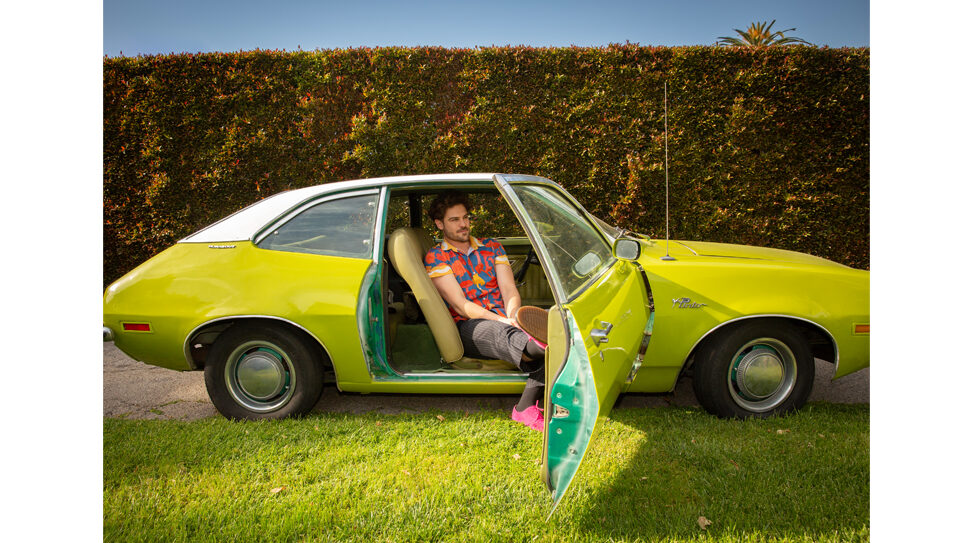

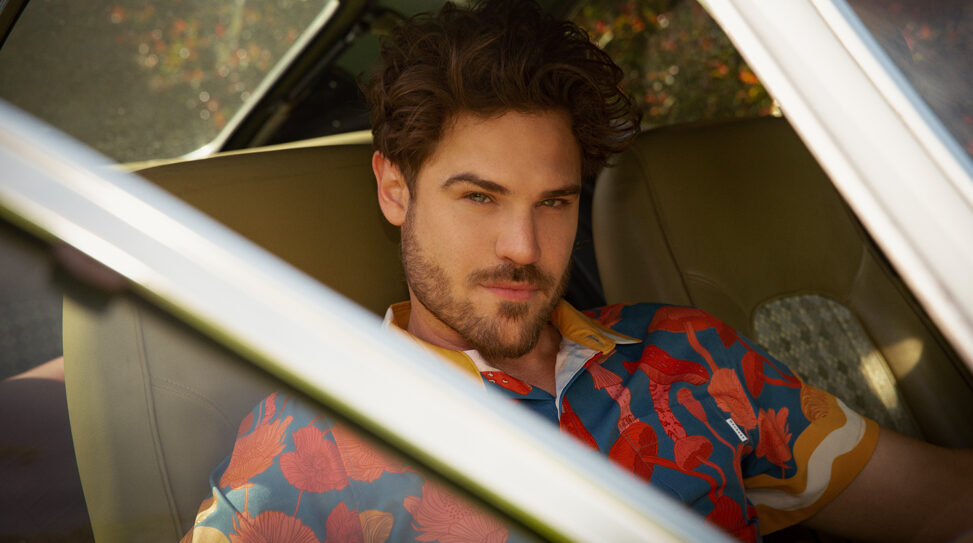
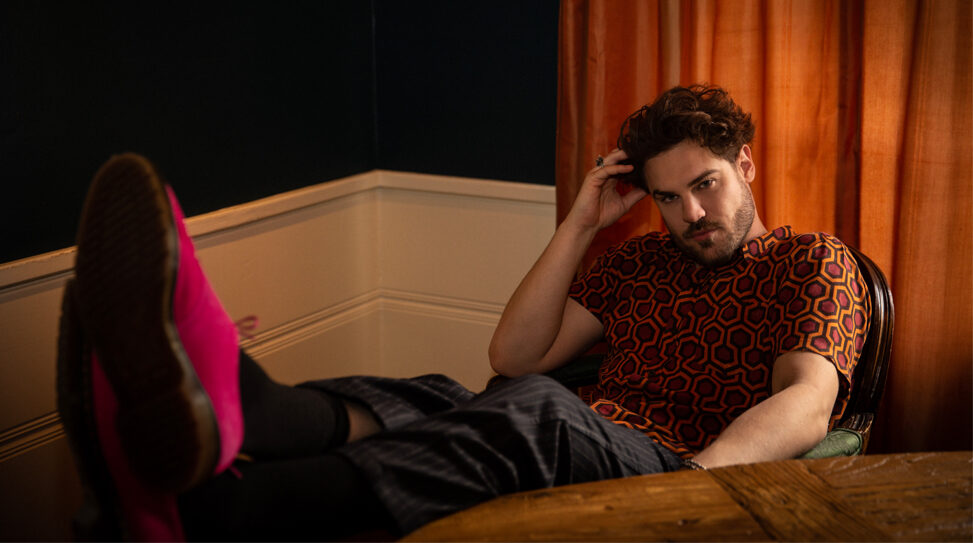
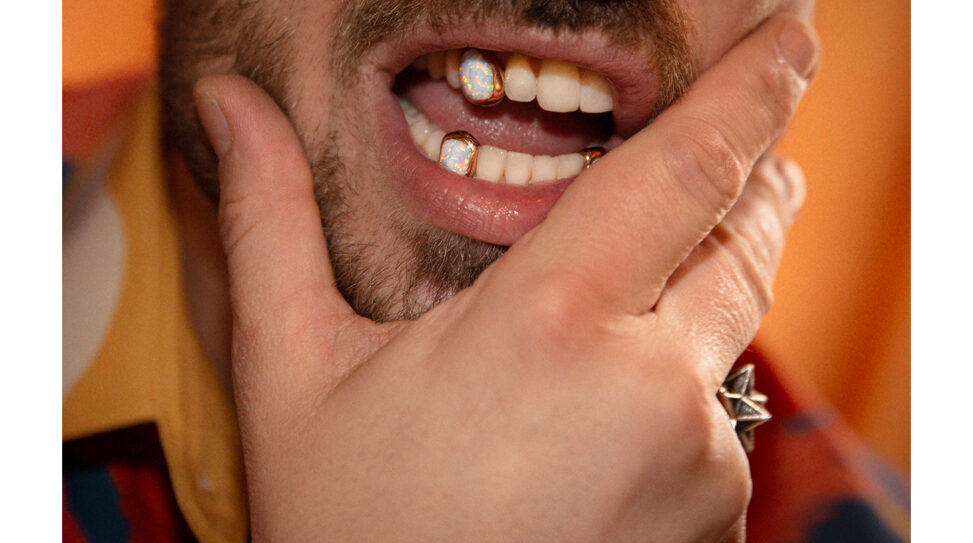
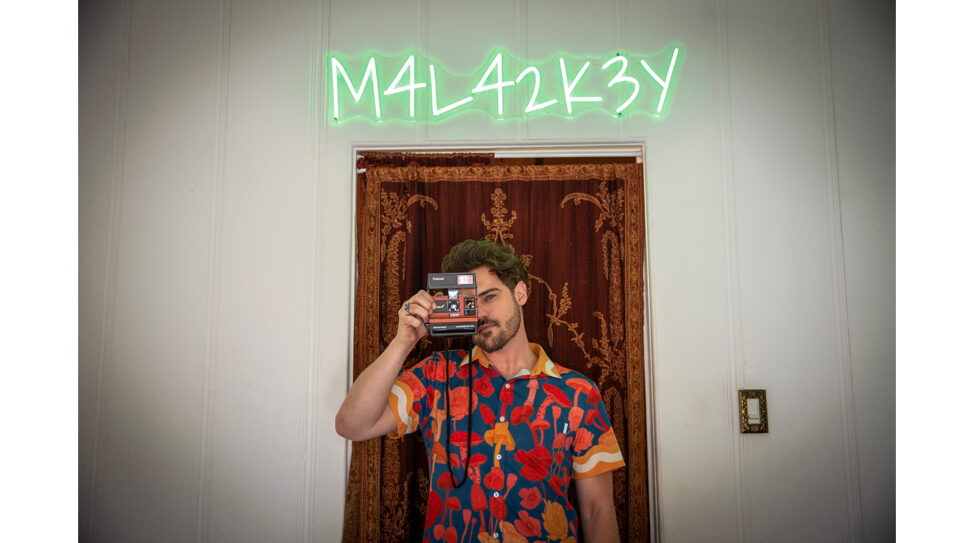
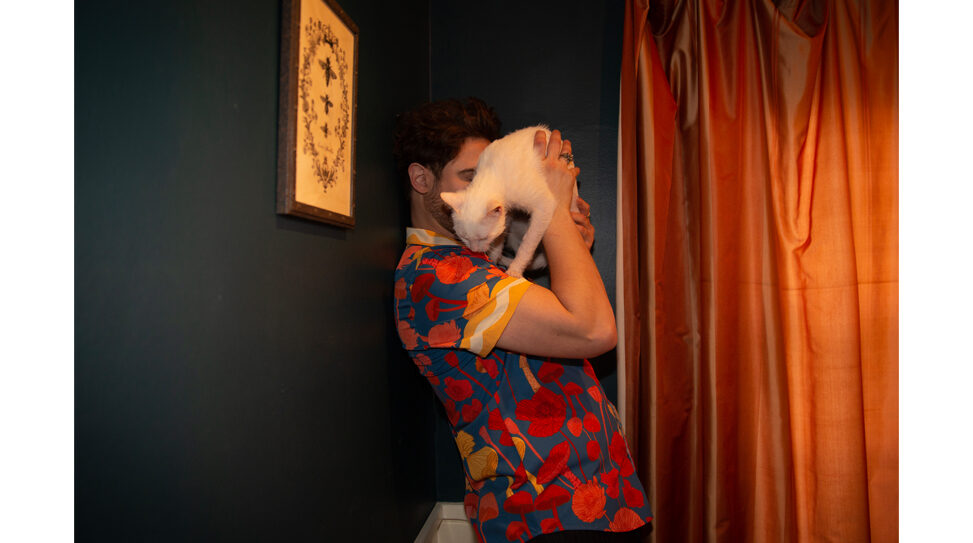
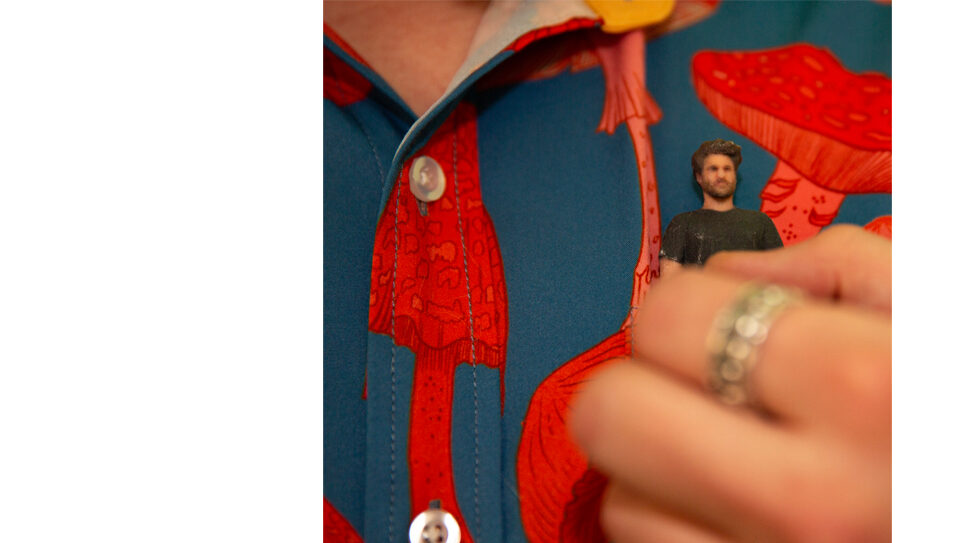
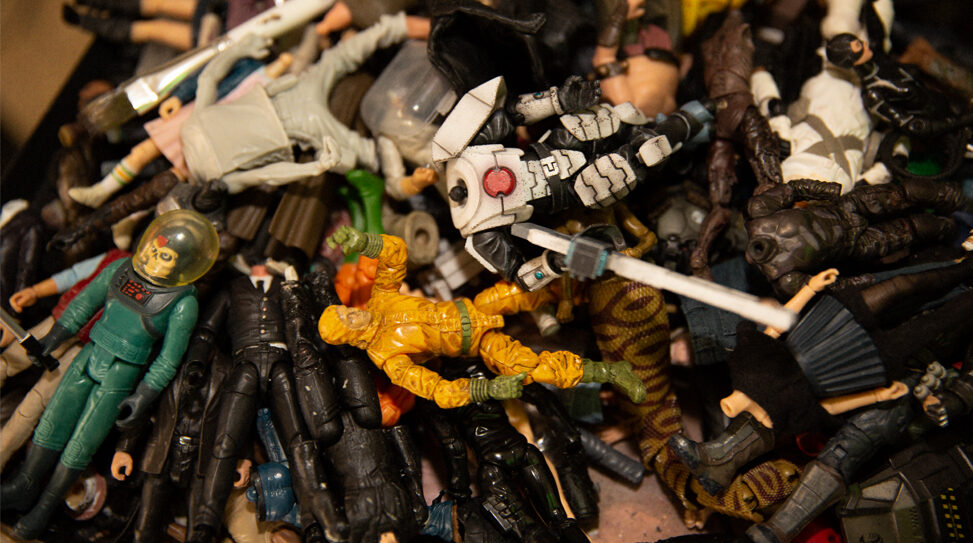
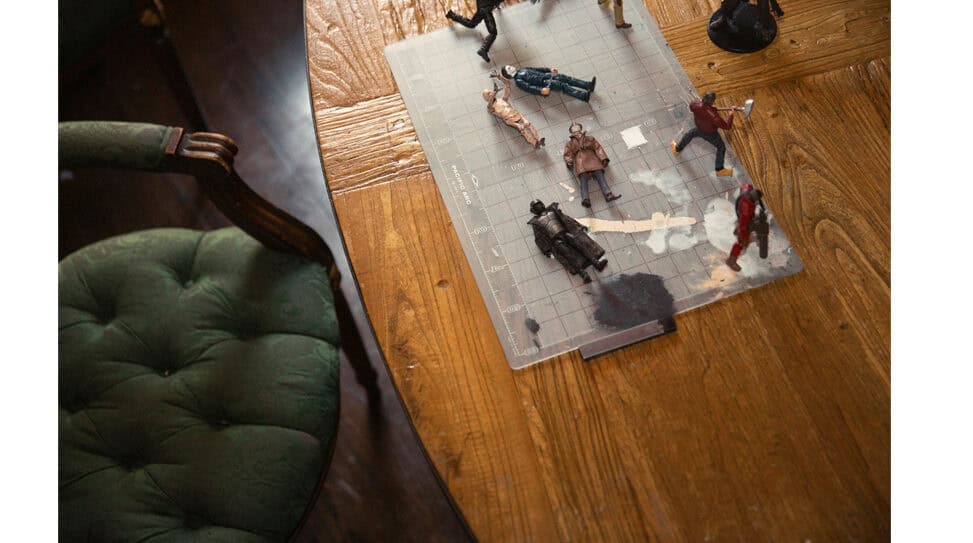
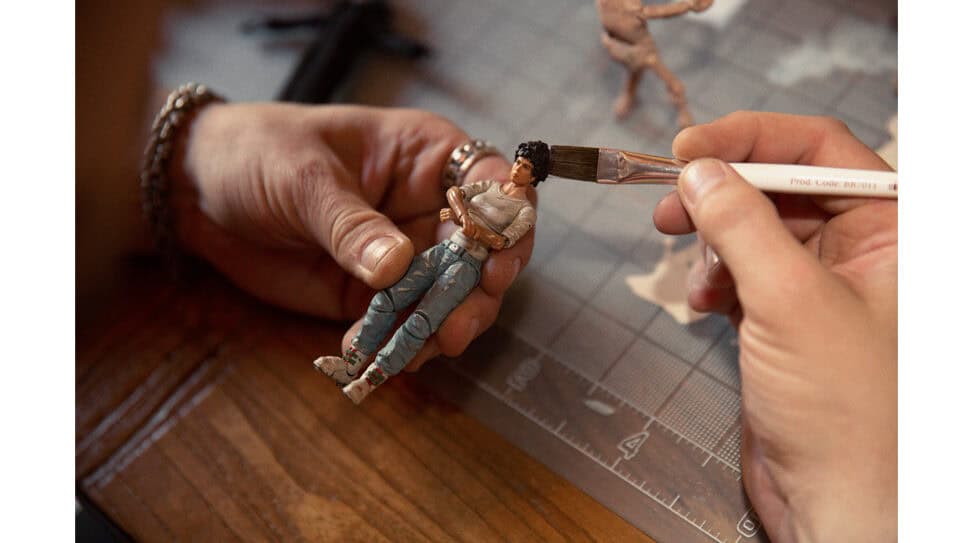
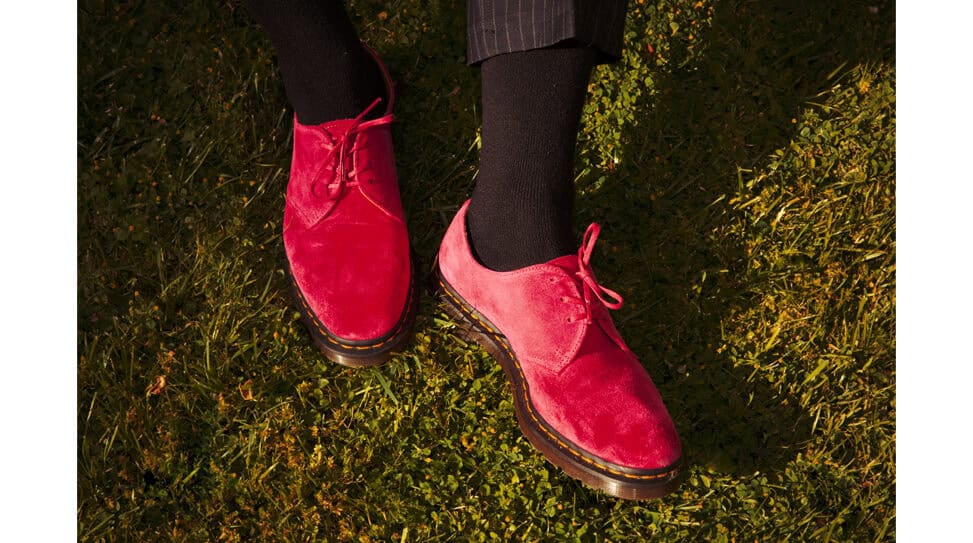
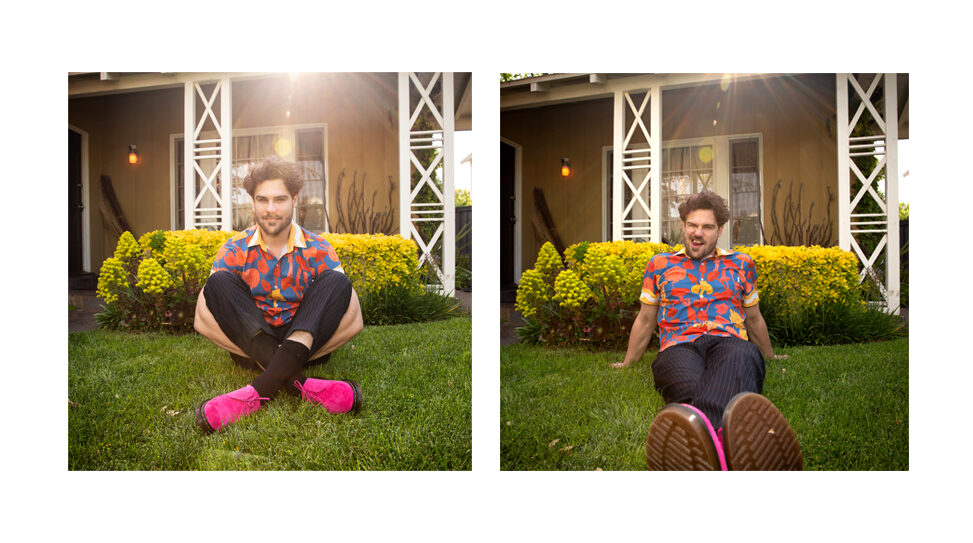
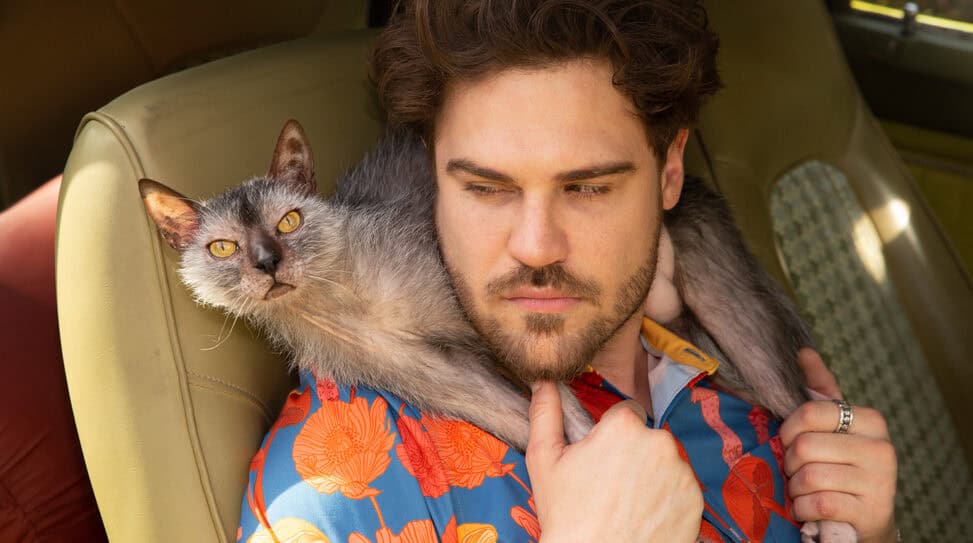
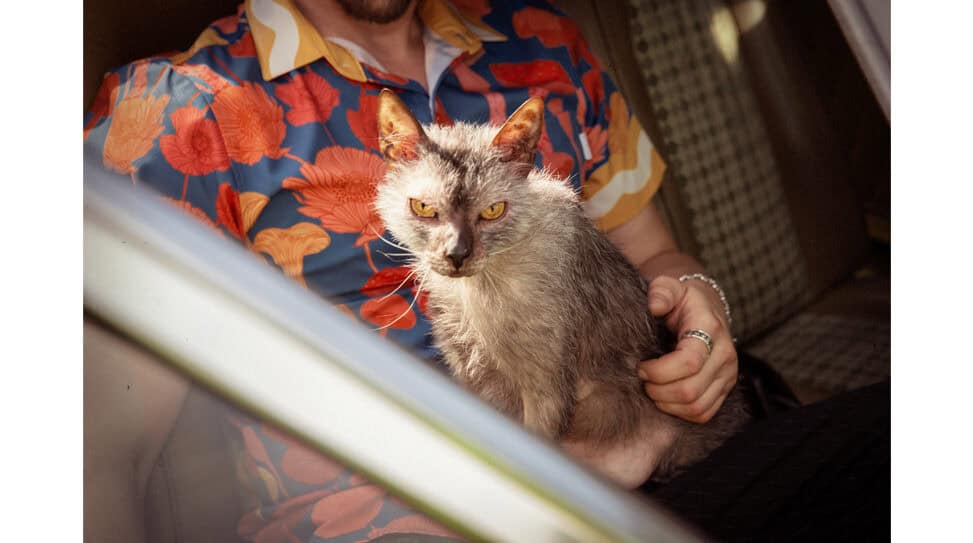
 A Conversation with Sean Wang
A Conversation with Sean Wang A Conversation with James Paxton
A Conversation with James Paxton
No Comments
Comments are closed.